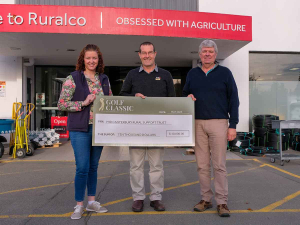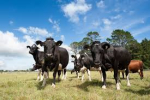New research just completed by Tony Martin shows many New Zealand firms could be missing good export opportunities in emerging markets.
As a masters student, Martin has just completed a thesis with Massey University on how small businesses select their export markets and find partners to do business with. He focused on the food and beverage sector because of its importance to the NZ economy.
He says there is a trend for smaller NZ companies to select markets they are familiar with rather than consider broader options.
“There’s a level of comfort or familiarity about countries we know more about and are more culturally aligned with, such as Australia, the UK, the US, Singapore and Hong Kong,” Martin told Dairy News.
“They are much more front-of-mind for a lot of our smaller and medium sized companies than, say, Asia, South America or the Middle East.
“The point of the research was to see if that is influencing the way small companies start their internationalisation process. The research told me that when the companies want to actively go out and develop international markets they normally will follow the path of those more familiar countries, so they go to Australia, UK, US and so on.
“But if they get an inquiry or an order for a product from a country they don’t know much about, one they are less familiar with, then sometimes that can be a catalyst to become interested in that country. But it is very rare for them to proactively go out to these less familiar countries.”
Some companies are unaware of the options which would help break down some perceived notions about these less familiar countries. “So when a country has language, or cultural or historical differences, it doesn’t necessarily mean it is more difficult to do business in than a country we are more familiar with.”
NZTE has offices in these countries and people who speak the languages. “We have people who understand the culture and can help to facilitate entry into these markets. The attractive thing about many of these emerging markets, or markets we are less familiar with, is they are growing rapidly and they want products we produce.
“The point of this research is not to open the floodgates and say ‘everyone should be coming to Vietnam’ or ‘everyone should be going to Indonesia’. It is about [indicating to] companies where the opportunities lie and with NZ Trade and Enterprise we follow where the companies want to go and that works well.”
But there is a need to better inform NZ companies about opportunities in markets they are less familiar with.


















